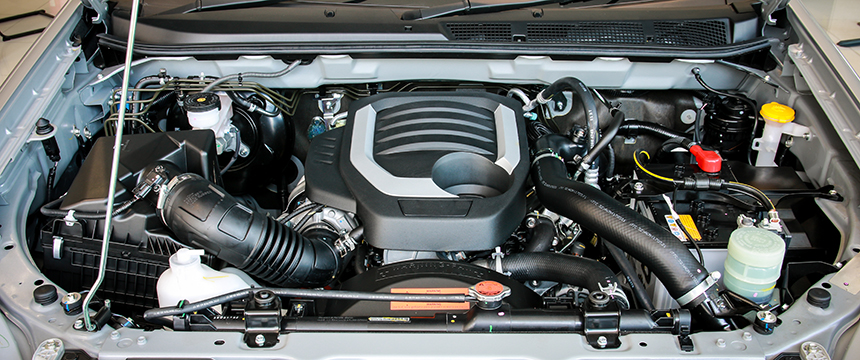
State legislatures across the country spent the first half of 2021 enacting laws that include several changes to warranty reimbursement obligations owed by suppliers to authorized dealers.
- Four states have new warranty reimbursement laws for automotive manufacturers:
- Illinois
- Louisiana
- Mississippi
- South Carolina
- One state has changed its warranty reimbursement laws for manufacturers of medium- and heavy-truck engines, transmissions, or rear axles:
- South Dakota
- There is also one new law on the books, changing warranty reimbursement rates for equipment suppliers across a number of industries — agricultural equipment, construction equipment, industrial equipment, forestry equipment, and outdoor power equipment:
- Connecticut
The relationship between suppliers and their authorized dealers is highly regulated by a patchwork of state dealer laws. One common component of the regulatory landscape is warranty reimbursement. Typical regulations mandate that suppliers pay a dealer’s retail labor rate for making warranty repairs, and pay a dealer’s retail markup, or some other percentage, on all parts supplied to a dealer for warranty repairs. Several states even mandate a retail markup on “no cost” parts, effectively prohibiting manufacturers from giving away parts “for free.” These regulations are expanding to cover recall repairs and “stop-sale” repairs, and to ensure reimbursement for pre-delivery inspection and other preparation and delivery tasks performed by dealers.
State dealer laws almost uniformly contain anti-waiver provisions. These ensure that warranty reimbursement requirements apply, notwithstanding the terms of the written dealership agreement. Suppliers cannot “contract around” these regulations. In some instances, a supplier may be able to invoke constitutional protections to avoid the retroactive applicability of these new laws, if they impair existing dealership agreements. Any supplier that wishes to avoid the new laws, with the intent of seeking protection against the impairment of existing contracts, should confer with legal counsel. In some jurisdictions, there are precedents holding that the type of automatic renewal terms often found in agreements may constitute a “new” contract that is not protected against retroactive applicability.
Set forth below is a summary of the changes in each of the six states. Any supplier that has dealer relationships in these states, for these industries, will need to revisit its warranty reimbursement policies and practices to ensure compliance with the new state laws.
Connecticut (Farm/Ag/Forestry/Industrial/Outdoor Power)
Connecticut SB 264, effective January 1, 2022, changes warranty reimbursement obligations owed by equipment suppliers. The regulations apply to suppliers of “farm and utility tractors, forestry equipment, light industrial or construction equipment, farm implements, farm machinery, yard and garden equipment, or attachments, accessories or repair parts for such items.” Under the new law, suppliers must reimburse dealers for parts at the current net price, plus eighteen percent (18%), and must reimburse for labor at the dealer’s retail labor rate. The bill also requires suppliers to allow resubmissions of previously denied claims where such denial was the result of minor errors or clerical errors.
Illinois (Automotive)
Illinois HB 3940, effective July 30, 2021, contains a number of changes to a supplier’s warranty reimbursement obligations. These include clarifying that recall and stop-sell repairs are covered by the reimbursement regulations; mandating reimbursement for labor at a dealer’s retail labor rate, using retail labor times; prohibiting cost recovery fees and surcharges; establishing deadlines for warranty reimbursement approvals; and eliminating the ability of suppliers to enter into an agreement with a majority of dealers to establish agreed-upon reimbursement rates.
Louisiana (Automotive)
Louisiana HB 502, effective August 1, 2021, contains a number of changes to a supplier’s warranty reimbursement obligations. These include expanding reimbursement requirements to recalls; adding reimbursement requirements for delivery and preparation obligations; mandating reimbursement at retail rates for parts and labor; establishing a process for determining a dealer’s retail rates; establishing a process for suppliers to challenge a dealer’s rates (including protest rights by dealers); and mandating retail markups for “no cost” parts.
Mississippi (Automotive)
Mississippi HB 746, effective July 1, 2021, contains a number of changes to a supplier’s warranty reimbursement obligations. These include adding reimbursement requirements for pre-delivery preparation obligations as well as pre-delivery inspection (PDI) notice requirements owed by suppliers to dealers; establishing a method for measuring dealer labor rates and parts markups; regulating labor time allowances; adding parts to the reimbursement requirement (previously, the law addressed only labor); mandating parts reimbursement at retail markup; mandating retail markups for “no cost” parts; and establishing a method for challenging dealer rates.
South Carolina (Automotive)
South Carolina SB 510, effective August 4, 2021, contains a number of changes to a supplier’s warranty reimbursement obligations. These include prohibiting cost recovery by suppliers; mandating PDI notice requirements and reimbursement for preparation, delivery, and inspection; adding recall work and stop-sale matters to reimbursement obligations; substantially rewriting the overall parts and labor warranty reimbursement obligations (including a method for calculation); establishing a protest process for addressing reimbursement disputes; mandating retail markups for “no cost” parts; establishing deadlines for suppliers to approve requests; placing limits on requesting changes to rates; and limiting reimbursement rate audits.
South Dakota (Heavy Truck Engines/Transmissions/Axles)
South Dakota SB 101, effective July 1, 2021, makes existing automotive reimbursement regulations applicable to manufacturers of separately warranted engines, transmission, or rear axles installed in a commercial medium- and heavy-duty on-highway vehicle. It imposes deadlines for claim approval and payment and establishes audit rights for manufacturers.
